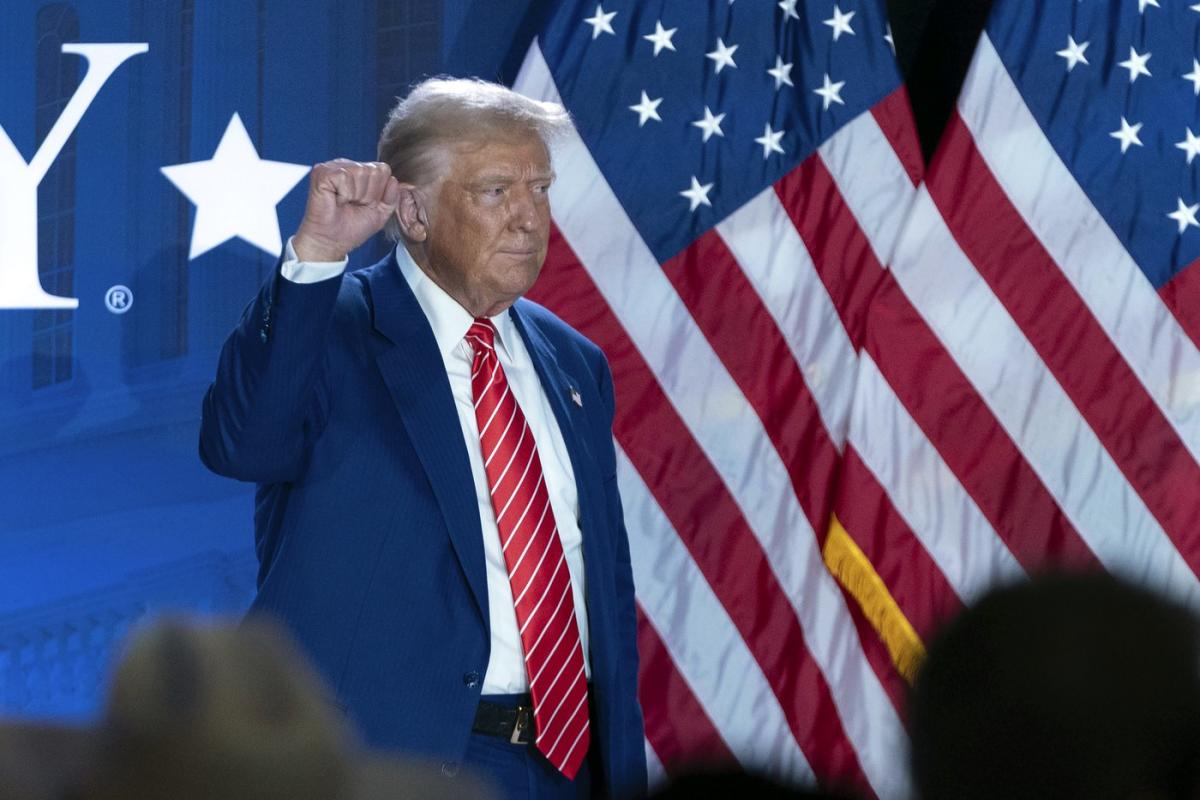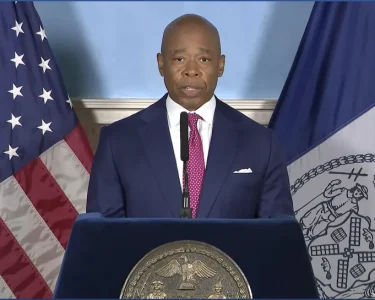In a surprising shift, former President Donald Trump Admits 2020 Loss in election to Joe Biden publicly. This statement, which came during a recent interview, has sparked a backlash among some of his most hardline supporters. Among those distancing themselves from Trump is Nick Fuentes, a prominent white nationalist who has long been vocal in supporting Trump’s presidency. Fuentes’ disavowal of Trump is emblematic of growing frustrations among far-right extremists, who once saw Trump as their political champion.
Trump’s Admission: A Turn of Events
For years, Trump has staunchly refused to concede the 2020 election, promoting claims of widespread voter fraud and insisting that the results were “rigged.” These claims fueled the January 6, 2021, Capitol riot, during which Trump supporters stormed the building in an attempt to overturn the election results. Trump’s rhetoric has had long-lasting consequences, deepening divisions within the Republican Party and contributing to his strained relationship with some of his most fervent supporters.
During a recent interview, however, Trump took a different approach, acknowledging that Biden had indeed won the 2020 election. The comment, though brief and seemingly offhand, marked a significant departure from his previous stance. “We didn’t win,” Trump said, shocking many who have followed his consistent denial of the election results. His admission has left both political pundits and supporters questioning what this means for Trump’s future in politics, especially as he hints at another run for the presidency in 2024.
Nick Fuentes’ Reaction: A Harsh Disavowal
One of the most immediate and vocal reactions to Trump’s admission came from Nick Fuentes, a white nationalist and influential figure in the far-right political sphere. Fuentes, who has made no secret of his extremist views, has been an ardent supporter of Trump, often praising his policies and style of governance. However, Trump’s admission that he lost the 2020 election seems to have been a tipping point for Fuentes.
Fuentes took to social media to voice his disappointment, saying that Trump had betrayed the movement that supported him. “We backed Trump because he fought for us, because he said what no one else would say. Now, he’s just like every other politician,” Fuentes remarked during a livestream. His disavowal of Trump highlights the growing discontent within far-right circles, where loyalty to Trump was once a given.
For Fuentes, who had built much of his platform on the belief that the 2020 election was stolen, Trump’s admission represents a fundamental betrayal. He has since called on his followers to move beyond Trump and look for a new political figure who can “truly represent” their beliefs.
What This Means for Trump’s Base
Trump’s base has long been diverse, ranging from moderate Republicans to far-right extremists. However, his recent comments may create a deeper rift among these groups. Fuentes’ rejection of Trump is particularly noteworthy because of the influence he wields within far-right and white nationalist circles. Many of Fuentes’ followers view Trump as a symbol of their political aspirations and have been unwavering in their support of him, even in the face of his post-election controversies.
Now, with Fuentes leading the charge against Trump, there is potential for a significant portion of the far-right to distance themselves from the former president. This could pose a problem for Trump if he plans to run for office again in 2024, as he will need the backing of his entire base—not just mainstream Republicans, but also the more extreme factions that helped propel him to victory in 2016.
A Larger Issue: The Far-Right’s Influence on American Politics
The far-right, including groups led by figures like Fuentes, has been growing in prominence over the past several years. Trump’s presidency emboldened many of these groups, who saw him as a leader who would advocate for their vision of America. Trump’s policies on immigration, his stance on “law and order,” and his often-controversial remarks about race and identity politics were seen as aligning with the far-right’s ideals.
However, Trump’s recent admission about the 2020 election could signify a turning point in the relationship between these extremist groups and mainstream Republican politics. As Trump tries to appeal to a broader audience in preparation for 2024, he may find himself alienating the very supporters who helped him rise to power.
The GOP’s Dilemma
The Republican Party is now faced with a dilemma: how to balance its appeal to a broad base of voters while managing the influence of extremist groups like Fuentes’ followers. Trump’s ability to bring together a coalition of various right-wing factions has been one of his political strengths, but it may now become a weakness as far-right leaders turn against him.
Some Republican leaders have already tried to distance themselves from far-right groups, recognizing the political risk of being associated with extremists. Others, however, continue to embrace Trump’s rhetoric, knowing that his base remains a powerful force in American politics. The next few months will be critical in determining whether the GOP can maintain unity or if it will fracture under the weight of these internal conflicts.
What’s Next for Trump?
As Trump prepares for a potential 2024 run, his recent admission could reshape his relationship with his supporters. While he still enjoys considerable popularity within the Republican Party, his acknowledgment of defeat may lead some of his base to question his political future. Fuentes’ disavowal could be the first of many as Trump’s base fractures along ideological lines.
Still, Trump has proven time and time again that he can weather political storms. His ability to pivot and rebuild his support may be tested in the coming months, especially if more far-right leaders join Fuentes in turning against him. However, with his strong hold over the Republican Party and a significant portion of its voters, Trump remains a dominant figure in American politics—at least for now.
In the evolving landscape of right-wing politics, Trump’s next move could determine whether he can keep his coalition together or whether his base will find a new champion.
For more insightful political analysis and the latest in breaking news, visit Digital Digest.





